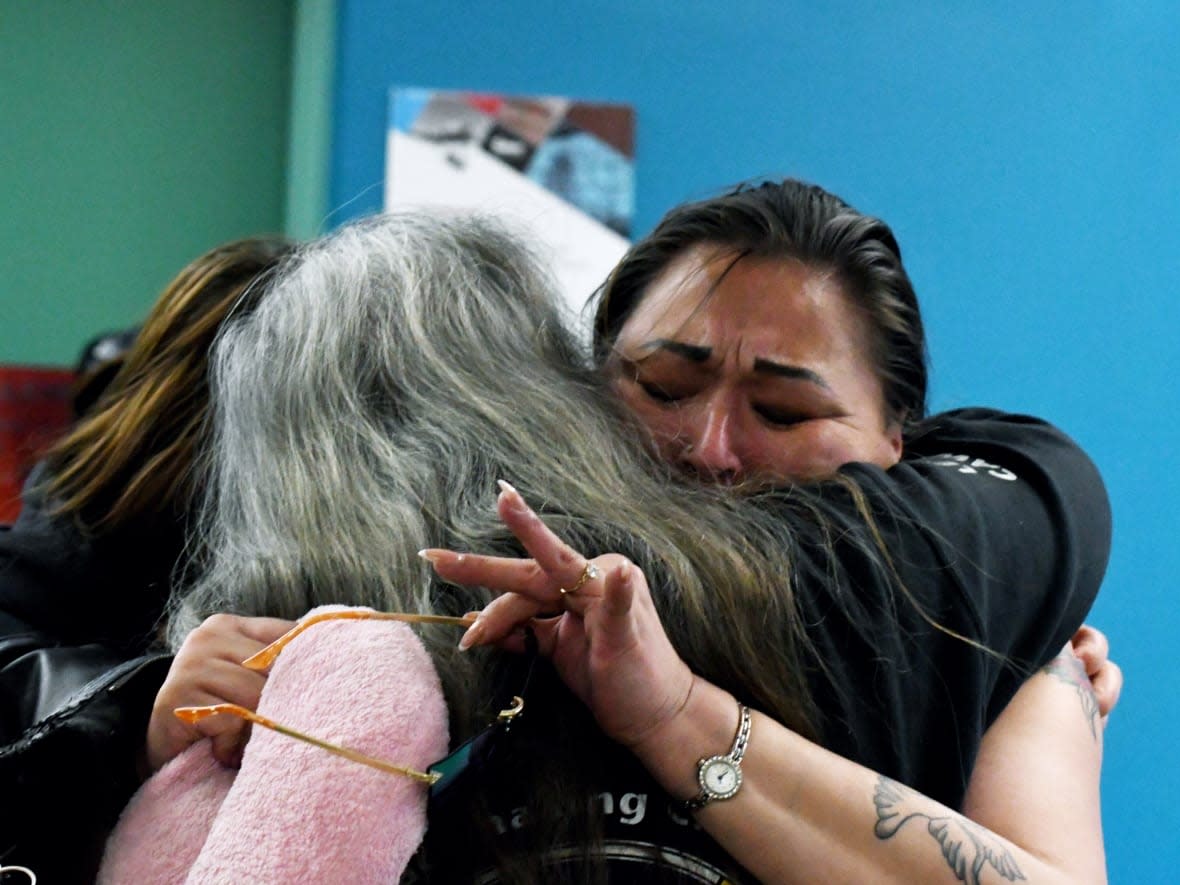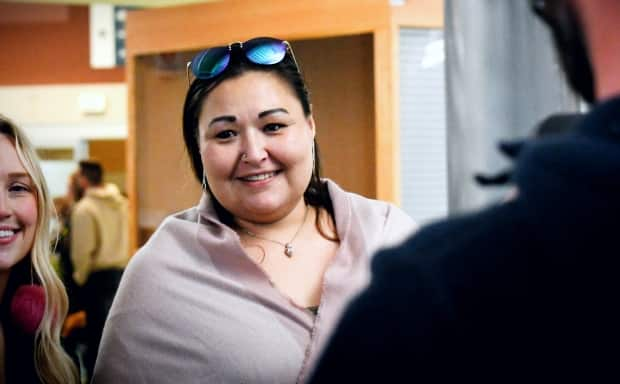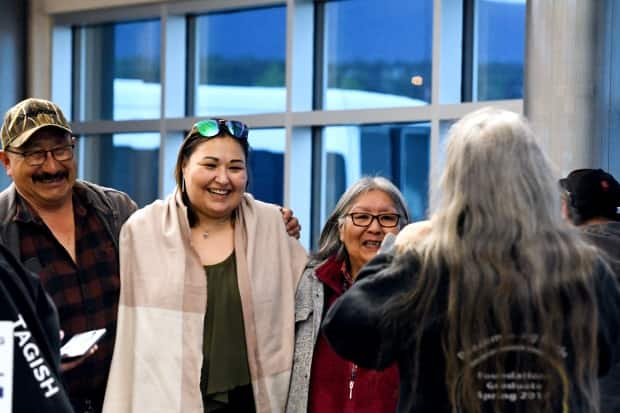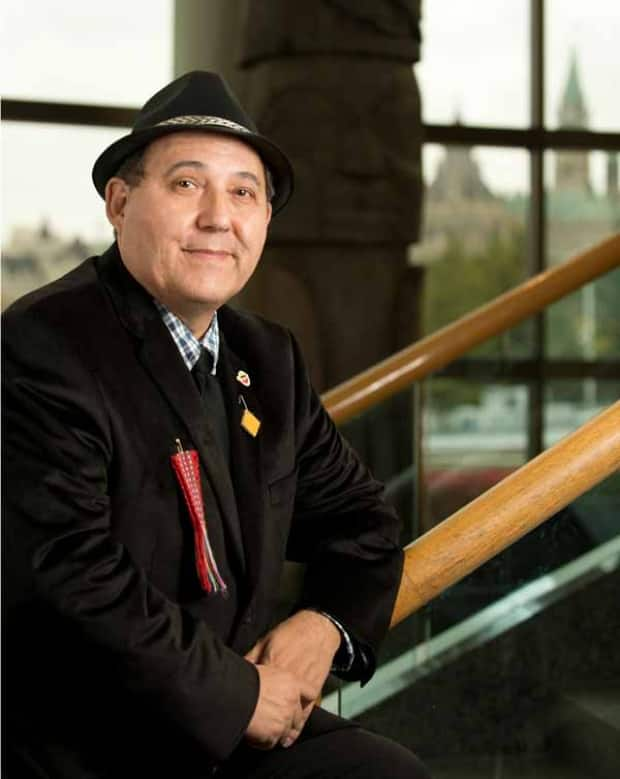First Nation woman back home in Yukon after years trapped in Turkish legal system

A Carcross/Tagish First Nation woman who was trapped in the Turkish legal system for nearly seven years has finally come home to the Yukon.
Charman Smith arrived at the Whitehorse airport Thursday night, where a half-dozen family members and friends were waiting for her.
"I'm happy, exhausted, tired, emotional — I'm good," she said.
It was a quiet, emotional reunion, with tears, hugs and group photos.
Leslie Cawley was one of the people to welcome Smith home.
"Being away from your homeland, your First Nation, to have people greet you and to bring a new beginning for her was important for me," said Cawley.
She said it was a "gift" to finally have her friend back.
"She's gone through a teaching that none of us can imagine, the good and the bad — and to be able to be there for her when she needs it, I think that's of prime importance," she said.
Smith said she took short videos throughout her trek — from Istanbul to Germany to Vancouver to Yukon.
"Flying over the territory, there's no words to really describe it," she said.
Now, her focus will be on healing.
"I need to be able to recover from this … It's an emotional recovery, emotional journey that I'll be on next."

First Nation 'excited to have her back home'
Smith, according to the Congress of Aboriginal Peoples, was sentenced in November 2016 to nine years and two months in jail after khat, a stimulant drug, was found in her luggage at Ataturk Airport in Istanbul as she was travelling back to Canada from Africa.
The congress, which advocates for the interests of off-reserve and non-status Indigenous people, and Smith say the drugs were planted in her bags without her knowledge.
Reports by APTN say Smith was incarcerated for several years, before being placed on a form of house arrest in 2020 when Turkish authorities released tens of thousands of prisoners in response to the COVID-19 pandemic.
Before beginning her journey home, Smith spoke with CBC from the Istanbul airport Wednesday evening.
She said she was provided paperwork two months after being imprisoned, stating she would serve a year of probation in 2022 and that her sentence would be complete at the end of March 2023.
She added that leaving friends she'd made in Turkey was hard to do.
"I've met a lot of people here along this journey… (who) have stuck by me, helped me through everything," she said.
However, Smith also said she was eager to get back to the Yukon.
"I'm looking forward to finally being with my family again and the people that I know, being able to go out and do the stuff that I was able to once do … like going out hunting and camping and fishing with my father and holding my daughter close to me," she said.
She added the "number one thing" for her was to finally meet her granddaughter, who was born while she was stuck in Turkey.
"This will be my first time meeting her face-to-face and I am so looking forward to that day and just hearing her laugh and not on video call," she said.

Carcross/Tagish First Nation's health and wellness director Stacey Robinson-Brown said the news felt "kind of surreal."
Robinson-Brown said her department got involved in Smith's case after she did an interview with APTN that outlined the financial and health struggles she faced in Turkey — including living with epilepsy.
Carcross/Tagish First Nation, along with the Congress of Aboriginal Peoples and the Skookum Jim Friendship Centre in Whitehorse, provided Smith with financial support after assistance from the Canadian government dried up, and also advocated for her return to Canada.
"I just want to, you know, kind of speak on behalf of all of health and wellness and Carcross/Tagish First Nation, (we're) really excited to have her back home on her traditional territory with family and friends who love her very much," Robinson-Brown said.
Lack of support from federal government, says CAP
Congress of Aboriginal Peoples (CAP) national vice-chief Kim Beaudin told CBC News that while he is happy Smith was finally free — he'd been checking in with her almost weekly — he thought the Canadian government should have done more.
"I was really hoping we'd get her home a lot sooner," he said.
"The federal government, Canada, I can honestly tell you did not do a very good job with her."
Beaudin said the congress repeatedly raised Smith's case with federal officials and contrasted the lack of attention on her situation with politicians "constantly advocating" for the "two Michaels," referring to Michael Kovrig and Michael Spavor, two other Canadians who were detained in China for three years.

Yukon MP Brendan Hanley said he was relieved that Smith had made it back home.
He said he became involved in Smith's situation when his office was copied on a letter sent to Foreign Affairs Minister Mélanie Joly.
Hanley said he also wrote his own letter to the minister asking for an update, but never heard back.
He also disagreed with the comparison of Smith's situation to that of the "two Michaels."
"I don't think you can frankly compare one case to another," he said. "There are so many nuances."
He added that the "toolbox is limited as an MP" and the goal in requesting updates from the minister was to "keep the case at the top of the pile."
Before she flew home, Smith told CBC that besides seeing her family and friends, she was eager to get back out on the land, and that as a Carcross/Tagish First Nation citizen, the "number one" places she considers home are Carcross, Tagish and Squanga Lake.
Where exactly she's going first, though, she didn't want to say.
"That one I'm keeping secret, I'm not letting anybody know," she said.
"I'm going off the grid — off the grid, back home."


